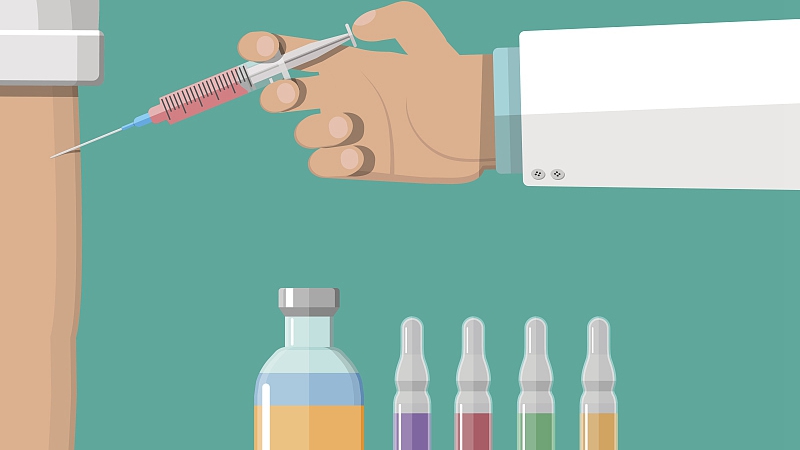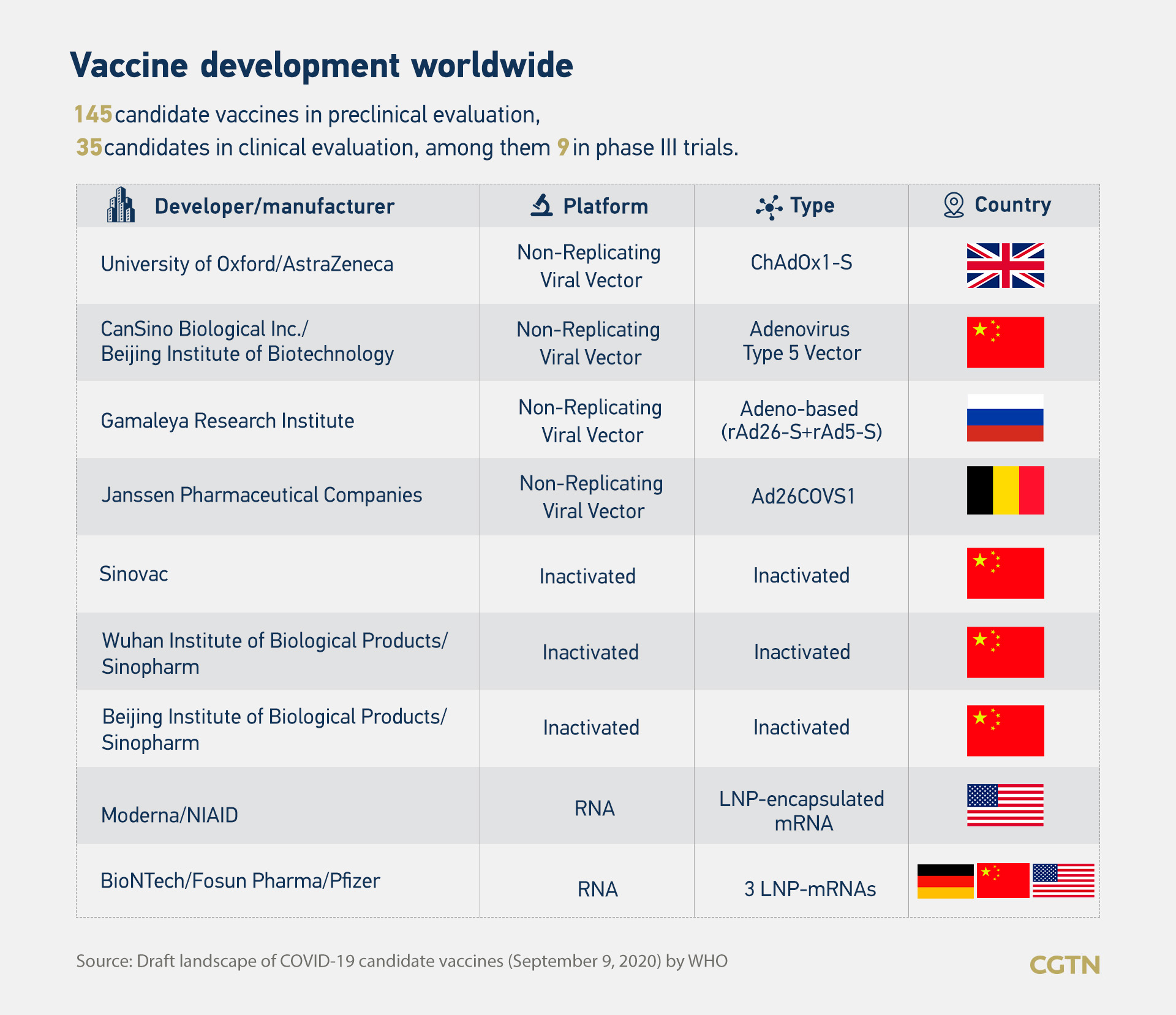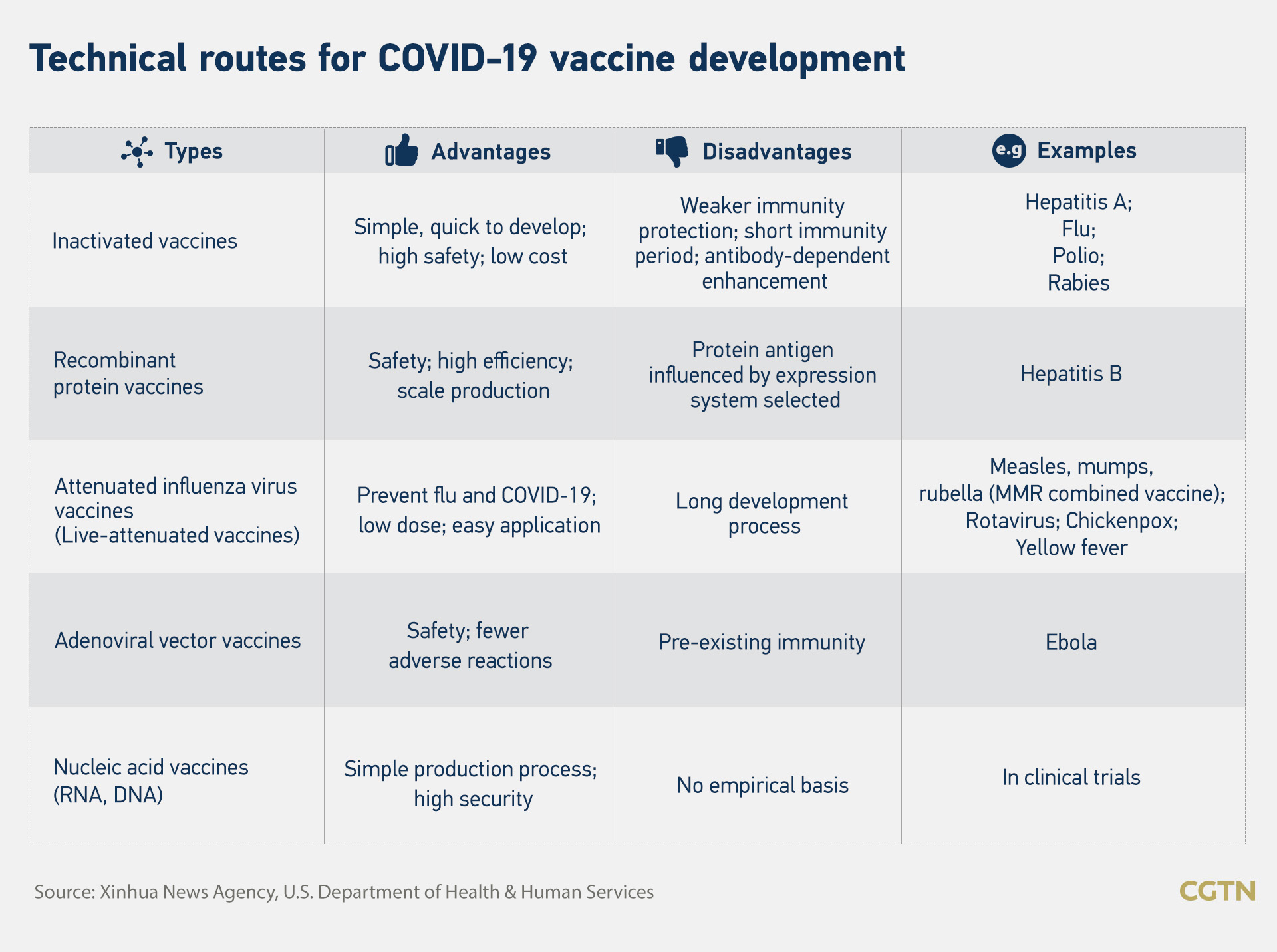
Facing the catastrophic threat of COVID-19, researchers and scientists worldwide are working around the clock to develop vaccines, the most effective way to fight the viral infection.
China is conducting clinical trials of 11 COVID-19 vaccines, four of which have entered phase three trials, said Wang Zhigang, Chinese minister of Science and Technology, at the Global Science and Life Health Forum in Beijing on Friday.
After the outbreak, China took swift action and mobilized medical, scientific, technological and other forces to contain the pandemic.
A batch of effective drugs and treatment methods was rapidly screened to form a treatment regimen suitable for coronavirus patients facing different stages of the infection, Wang said. Within a short period, the nucleic acid test development, antibody detection reagents, and supporting equipment were completed to meet the diagnosis needs in different application scenarios.
"China boosted the development of five technical routes in parallel for COVID-19 vaccines," said Wang. "So far, we have 11 vaccines that have entered clinical trials, among which four have entered phase three clinical trials."
That accounts for half of the vaccines that have entered phase three clinical trials globally.

CGTN infographic by Du Chenxin
CGTN infographic by Du Chenxin
Among the four candidate vaccines in China, the one developed by Chinese biopharmaceutical firm CanSino Biologics and a team led by infectious disease expert Chen Wei is an adenoviral vector-based vaccine, while the other three are based on the inactivated virus.

CGTN infographic by Yin Yating
CGTN infographic by Yin Yating
Technical routes for vaccine development
Vaccine development usually adopts five technical routes worldwide, namely inactivated vaccines, recombinant protein vaccines, attenuated influenza virus vaccines, adenoviral vector vaccines, and nucleic acid vaccines (mRNA, DNA).
The inactivated vaccine is the most common approach. Its features are simple, rapid development, high safety, and usually used to deal with acute diseases.
Adenovirus vector vaccine is made by using harmless modified adenovirus as a carrier and loaded into the virus' spike protein gene to stimulate the production of antibodies in the human body. It is safe, efficient, and causes few adverse reactions.

CGTN infographic by Du Chenxin
CGTN infographic by Du Chenxin
Frequently asked questions about China's potential vaccines:
1. When will the vaccine be available to the public?
Ordinary Chinese residents could start receiving COVID-19 vaccines as early as November or December, as the current Phase III clinical trials have been going smoothly, said Wu Guizhen, chief biosecurity expert from China's Center for Disease Control and Prevention (CDC).
"In April, I was vaccinated as an experimental population. I am feeling good in these months without any abnormal condition," said Wu. "I didn't feel local pain when vaccinating."
2. How long will the antibodies develop after vaccination?
Studies show that people who received two doses of the inactivated vaccine developed by China National Biotec Group (CNBG) at an interval of two to four weeks usually developed antibodies a week after the first shot, and all have neutralizing antibodies 28 days after the second shot, said Zhou Song, general legal counsel of CNBG.
3. How long will the immunity last?
"Based on experience and studies, we expect the efficacy of the vaccine to last for about one to three years," said Wu, adding that as it's only been a short time for the vaccine development, "we're still observing."
4. Will the vaccines still work in case of a coronavirus mutation?
The vaccines should be able to work against all strains of the novel coronavirus, assured Zhou.
"There are indeed several subtypes of the virus that are mutating, but its main gene sequence and protein structure have not changed. The inactivated vaccines will have no problem in dealing with these mutated viruses in the next few years and can cover them."
5. What's the price of the vaccine?
The price hasn't been fixed, but on the whole, it will be much lower than 1,000 yuan (about 146.3 U.S. dollars). Whether to get two or three shots depends on the clinical trial results. In the case of two shots, it's likely people need to get a second shot within six months or a year, according to Zhang Yuntao, vice president of CNBG.
6. Is the vaccine safe?
The stability of the inactivated COVID-19 vaccine candidate is under continuous observation and is good at present. From experience, all inactivated vaccines show good stability, said Zhang.
Hundreds of thousands of people have been given two Chinese COVID-19 vaccine candidates as part of an emergency program, without a single case of infection or adverse effects, said Zhou.
7. Can the elderly and minors get vaccinated?
In the clinical trial phase, children aged over three years, adolescents, adults and the elderly are under rigorous monitoring of their health condition after vaccination, said the CNBG research team.
"After China authorized emergency use of the inactivated COVID-19 vaccines on July 22, a large number of high-risk exposed people were vaccinated, mainly adults over 18 years old, including some over 60 years old," the team said.
"We also closely tracking the health of these individuals after vaccination. The total number of people observed in these two scenarios is several hundred thousand. The monitoring data show that the vaccine is highly safe in the whole population, including children, adolescents, adults and the elderly."
8. Can pregnant or breastfeeding women get vaccinated?
It's not recommended currently, as we don't have a large enough sample size for such a population, said Zhou.
For people with a history of drug allergy, it should be clear what the specific drug is. One can get vaccinated if it is not the component contained in the vaccine.